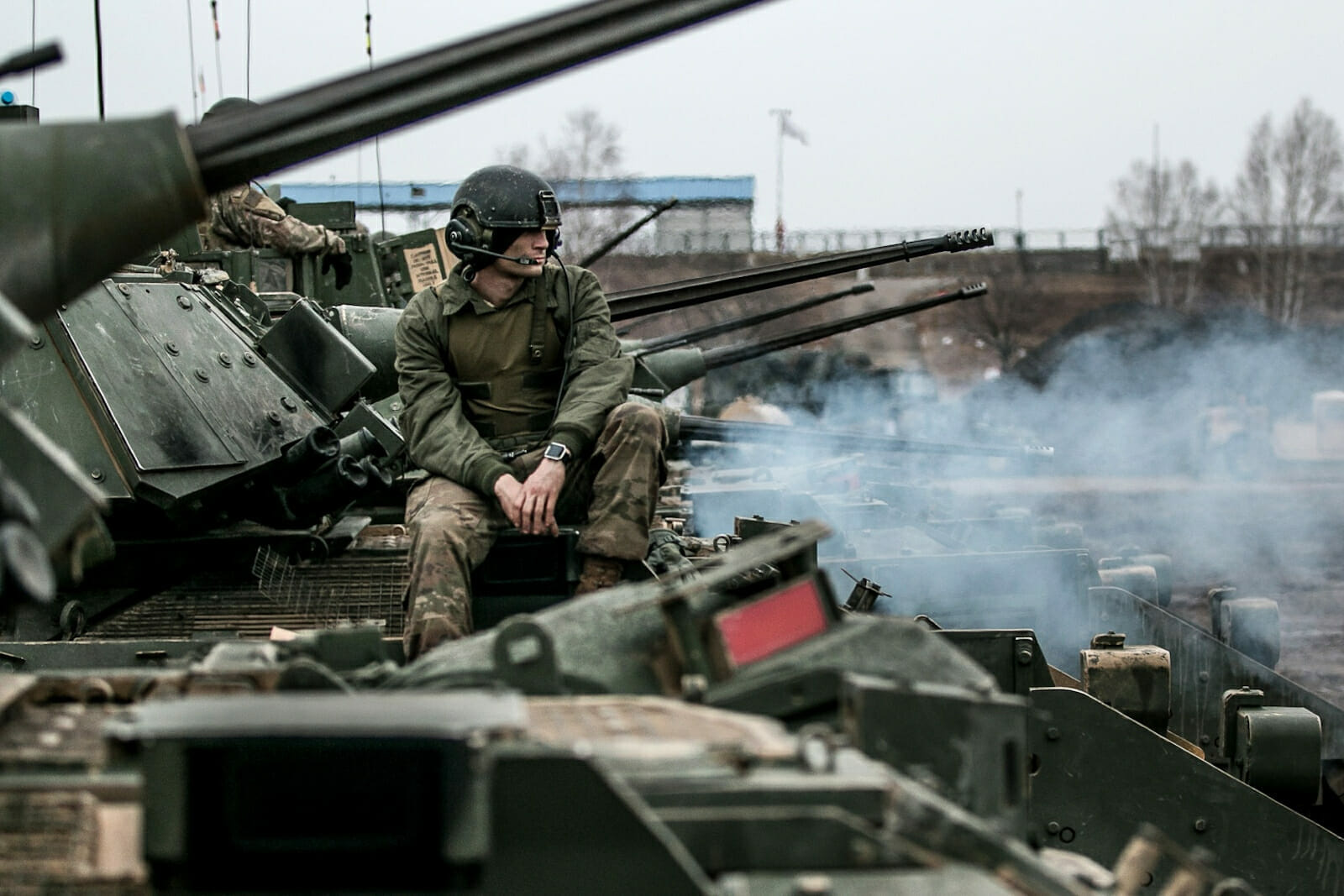
Analysis of the U.S. Grand Strategy
Since WWII, the US grand strategy has focused on pursuing geopolitical dominance, a unipolar strategy, which has revolved around maintaining its overwhelming military, economic, and political preponderance through the promotion of democracy and human rights abroad that is often touted as national security or foreign policy. With the end of the Cold War, the US has managed to maintain its great advantage by making its allies more secure and therefore, keeping its hegemony and the world order. The US continues to dominate the international system and thus discourages advanced industrial nations from challenging its leadership. Furthermore, the US has used a policy of reassurance to secure US interests and provide security to key allies which has prevented them from building their own military capabilities.
Some may argue that this US unipolar strategy provoked terrorist attacks against the US and its allies, and it did not prevent the rise of new global powers. Thus, US primacy has not been entirely successful in guaranteeing its security or economic and political supremacy. Moreover, the US has moved far beyond counterterrorism to counterinsurgency, and from the temporary deployment of small anti-terrorism forces to a near-permanent military presence. The American response to terrorism has undermined critical elements of US ‘soft’ power in the international arena, even as its ‘hard’ power has been reinforced. Notwithstanding its unipolar status, the terrorist assaults on American and its allies’ homeland demonstrated dramatically that the US faces significant challenges beyond the realm of great power competition.
In terms of security strategy, the Trump administration has clearly drawn away from the American grand strategic tradition of retrenchment or deep engagement. ‘America First’ seems to have to address US foreign policy by withdrawing from certain treaties and intervening in the pursuit of US security and prosperity. The US current administration aims to maintain its security and prosperity by allowing other great powers to promote a global liberal order. The Trump administration uses foreign policy more ambitiously because it considers an unprecedented grand strategy of illiberal hegemony.
Traditional US liberal hegemony strategy used to focus on promoting democracy and human rights, creating multilateral institutions, and mirroring the international system vis-à-vis the US values. In contrast, Trump’s illiberal hegemony strategy seeks superior economic and military capability by portraying the US as the world’s arbiter. Such an expensive strategy has increased the US defense budget, security and military commitments, and nuclear modernization programs. Contrary to previous administrations that invested considerable sums of money in building democracy abroad, the Trump administration envisions engagement with the world’s security problems by targeting its main allies – Europe, Japan, and Saudi Arabia.
Trump’s foreign policy in Europe intensified EU efforts to reduce an over-reliance on US protection. It seems that the US administration is trying to return NATO to Europe by mitigating its financial contribution and military spending for a NATO expansion. As a result, the EU launched a military joint-force, PESCO, that could pave the way for an EU army.
PESCO was first established in the 2009 Lisbon Treaty, as an EU defense cooperation. PESCO members have pledged to increase defense budgets in real terms regularly, genuinely pursue national investments with due consideration for joint capability needs, expose national plans to EU scrutiny, and, ultimately, provide more strategically deployable forces than currently available today. This force could play a leading role in scenarios such as peace support operations in the Western Balkans.
Although the US has shown a hesitation to embrace the idea of deeper European defense integration fully, the US should support a more self-reliant EU. When it comes to defense, the goal is also to improve competitiveness and enhance innovation across the continent’s defense industry. In a post-Brexit world, the momentum behind PESCO offers an opportunity for the US to revisit the EU’s legacy goal of deploying and sustaining 60,000 ground troops as part of a joint force.
In Asia, Japan is the most relevant US partner in some foreign policy areas, particularly in security concerns, which range from hedging against Chinese military modernization to countering threats from North Korea. In 2018, Japan’s military sees record spending, aiming at buying more US arms. Japan’s Ministry of Defense in August sought record spending of 5.3 trillion-yen next year to help pay for significant upgrades to defenses designed to shoot down any North Korean ballistic missile. Japan military budget has grown for the seventh year in a row. The US should allow Japan to pursue its own military capability, which would lead to a political, military and economic balance or rivalry within the region.
As for the Middle East, US-Saudi alliance is extremely important for the US foreign policy due to the US national interests of economic prosperity, security, the fight against terrorism and energy supply. Trump’s first foreign visit as US president was to Saudi Arabia in May 2017, where a military deal worth $110 billion between the two countries was penned. The Trump administration has sought to strengthen ties to Saudi Arabia by signing this arms sales contract. Additionally, President Trump dismissed proposals to cut arms sales to the kingdom and backed the Saudi Crown Prince, Mohammed bin Salman’s assertions that he did not order the killing, despite the reported conclusions of the CIA.
Furthermore, Saudi Arabia is the top destination for US arms, with US defense sales to the kingdom totaling close to $90 billion for the past seventy years. In addition, both countries share security concerns about Iran. They both have ramped up efforts to counter Iran, Saudi Arabia’s main regional rival. Regarding energy supply, the US imports only 25% of Saudi oil reserves, whereas US allies – Europe and Japan – depend on the Middle Eastern oil, and therefore, should share the responsibility for stabilizing the region.
By sharing with its allies the world’s security problems, the US strengthens the allies’ presence, shares information, and develops deep cooperation. Thus, the US and its allies need to work together and better balance the burden of democratic world order. Alliances are better for everyone and institutions facilitate iterated interactions amongst members. The US and European countries cofounded most of the world’s institutions in the aftermath of WWII. Such institutions helped shape the world we live in. Therefore, the US should maintain its robust presence in these institutions as well as in multilateral agreements.
As for counterterrorism and counterinsurgency, the US and its allies should increase their interaction regarding strategic intelligence based on allied security forces. Terrorism is the world’s problem that needs a collective effort to fight against it. Short-term military actions informed by long-term analysis, would reshape the international environment and constrain terrorist attacks.
The Trump administration should develop a range of politically credible, clearly articulated indirect actions to support the allies’ efforts to improve their civil defense capabilities. By adopting a multipolar strategy, the US would allow other nations to build their military capabilities and provide for their own national and regional security. In this great geopolitical rebalancing, states share the burden of maintaining stability in various parts of the world, looking for absolute gains and more peaceful relations.

